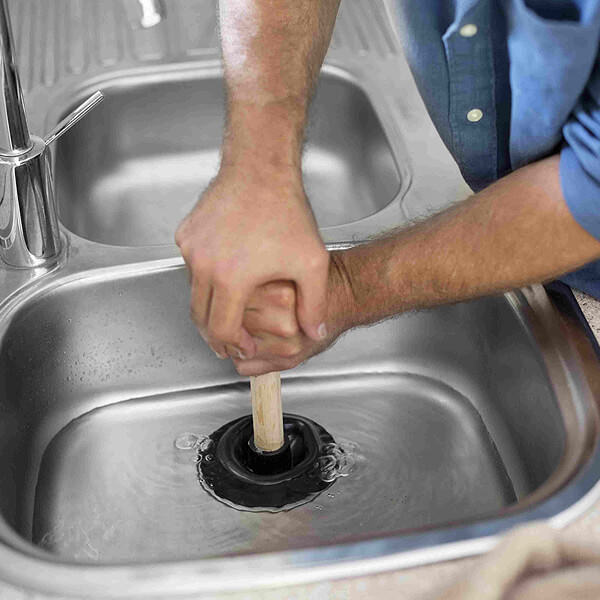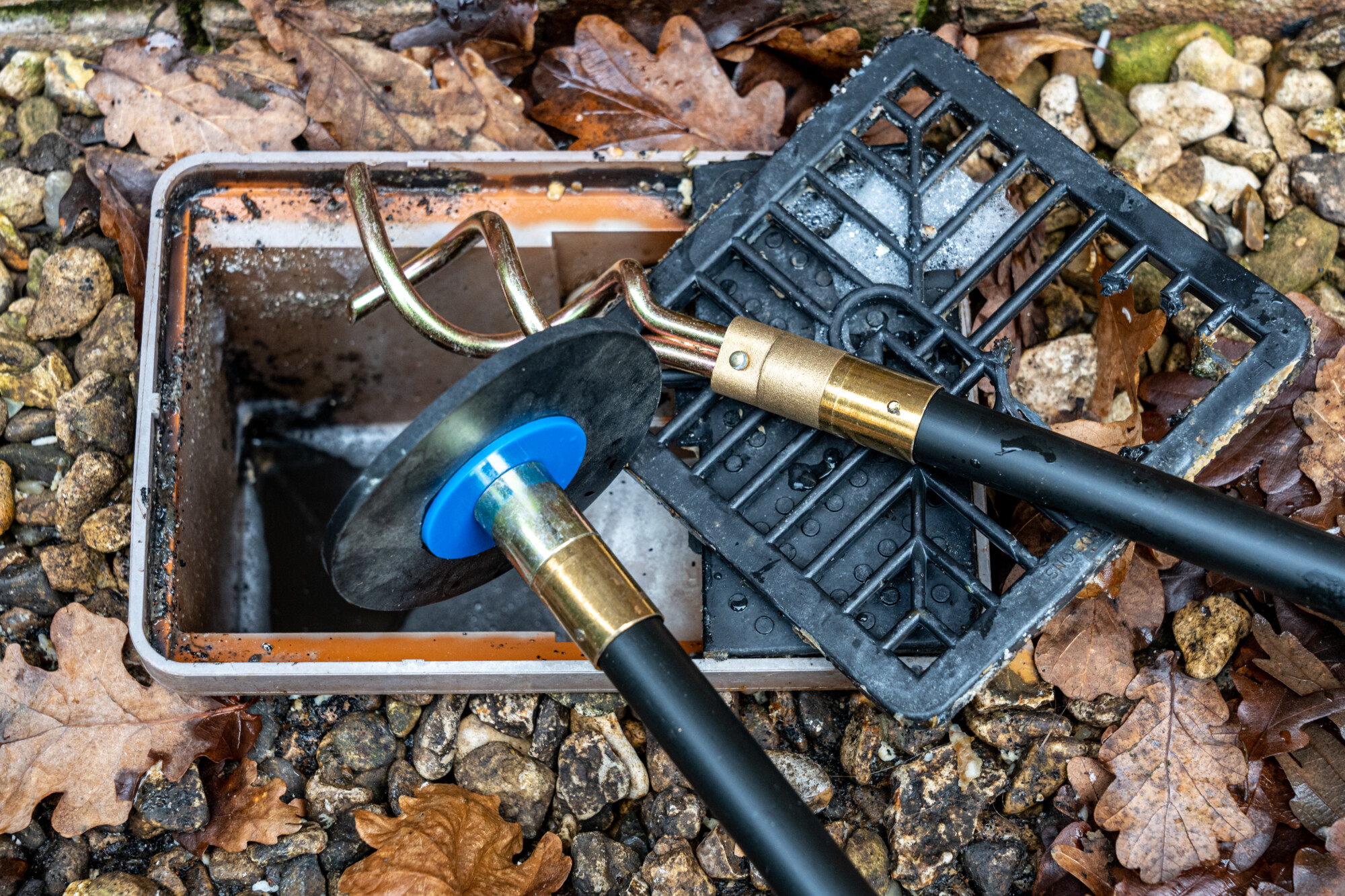Tips for Managing a Blocked Drain Prior to Contacting Professional Plumbers
Tips for Managing a Blocked Drain Prior to Contacting Professional Plumbers
Blog Article
Right here down the page you will find a good deal of superb insights pertaining to 8 Tips For Clearing A Blocked Drain.

Intro
Taking care of an obstructed drainpipe can be a frustrating experience, disrupting day-to-day activities and possibly causing damages to your home. Nonetheless, before reaching out to plumbing professionals, there are actions you can take to deal with the issue on your own. In this overview, we'll discover do it yourself solutions and preventive measures to tackle a blocked drainpipe effectively.
Determining the Concern
The primary step in dealing with a blocked drain is recognizing the indicators. Slow-moving water drainage, gurgling sounds, foul odors originating from drains, or water support up are common indicators of an obstructed drain. Identifying these indications early can assist protect against additionally difficulties.
Usual Reasons For Blocked Drainpipes
Understanding the factors that add to drain pipes clogs is essential for effective resolution. Usual perpetrators consist of hair, soap scum, oil, food debris, and foreign objects like hygienic items or paper towels. Tree roots invading underground pipelines can also create significant blockages.
Do it yourself Solutions
For small obstructions, numerous do it yourself options can be efficient. Pouring boiling water down the drain can aid dissolve grease and particles. Baking soda and vinegar or a mixture of salt and baking soft drink can work as all-natural cleaners. Making use of a bettor or plumbing serpent to displace blockages is another alternative.
Devices and Tools
Having the right tools handy can make DIY drain cleansing extra reliable. A bettor is a functional device for removing obstructions in sinks, toilets, and showers. A plumbing serpent or auger can get to deeper blockages, while drainpipe cleansing chemicals can be made use of very carefully for stubborn clogs.
Safety nets
To avoid future clogs, taking on safety nets is important. Install drainpipe guards or filters to catch hair and debris prior to they enter the pipelines. Regularly flush drains pipes with hot water to dissolve grease accumulation, and avoid disposing of grease or strong waste away.
When to Call a Professional
While do it yourself services can resolve minor blockages, certain signs suggest the demand for expert assistance. Relentless clogs, foul odors in spite of cleaning efforts, or several drains pipes supporting concurrently are warnings that necessitate experienced intervention.
Picking the Right Plumbing Service
When picking a pipes solution, consider variables such as experience, licensing, and client reviews. Select a credible plumber with a track record of quality workmanship and clear prices practices.
Expense Factors to consider
The cost of specialist drain cleaning company can vary relying on the seriousness of the blockage and the plumber's rates. Demand quotes from numerous companies and ask about any type of surcharges to make certain openness and avoid shocks.
Security Measures
When trying do it yourself drain cleansing, focus on safety. Wear protective handwear covers and eyeglasses to avoid contact with damaging chemicals or microorganisms. Never mix various drainpipe cleaning items, as this can produce unsafe fumes.
Case Studies
Real-life instances show the performance of DIY services and the importance of timely professional treatment in settling drain clogs.
Final thought
By adhering to the suggestions laid out in this guide, you can effectively tackle obstructed drains and stop future plumbing issues. Whether opting for DIY solutions or seeking professional assistance, timely activity is key to maintaining a healthy and balanced pipes system and protecting the integrity of your home.
How to Clear a Clogged Drain Yourself (And When to Call In the Professionals)
What Can Clog a Drain
Dirt Skin flakes Hair Grease Soap scum Food Offset pipes Tree roots Small objects Mineral buildup DIY Tricks to Unclog a Drain
You can fix this! Once you have identified the source of the clog (or have a vague idea), you can try one or a combination of these fixes in order to clear your plumbing.
Wire Hanger or Snake
Untangle and clear out hair from a drainpipe with a homemade snake. Use a straightened-out wire hanger with a 90-degree angle hook to locate the clog and drag out any unwanted material.
Remember not to push the clog further down to where the wire hanger cannot reach! If you need to follow up with a plunger, give it a try. Your efforts might be more successful after it’s been wire-snaked.
If you want to get fancy and don’t have a wire hanger to spare, head to the store and pick up a hand-operated drain snake. You can get one for $10-$30. It may save you the hassle, and provide additional length to reach deep into the clogged pipe.
Plunger
A cup plunger has a suction cup attached to a wooden handle. The rubber creates a seal around the drain, and increases the pressure force of the plunger.
Plunge for 30-second increments to loosen the clog. This may need to be repeated over the course of 15-20 minutes. Once plunged, run the water to flush the remaining material out of the drain.
Remember– never use a plunger if you have used a chemical drain cleaner. These chemicals can splash up from the force of the plunger and cause serious injury or burns.
Boiling Water
Hot water can sometimes break up materials into a flushable amount. Dirt, grease, and soap buildup requires heat in order to unstick from surfaces.
Take your kitchen kettle and heat your water to a boil. Once it reaches a rolling boil, pour it directly down the drain into the blockage. Carefully follow with plunging, if necessary.
Don’t worry if this takes more than one try! It can often take multiple kettles and repeated plunging in order to clear a particularly stubborn clog.
Chemical Drain Cleaner
As a last resort, pick up a bottle of chemical drain cleaner. Drain-cleaning chemicals are potent, and not very good for the environment.
You may need to wear protective eyewear in gloves before handling your bottle of chemical drain cleaner. Follow the instructions printed on the bottle, and flush with water as soon as the instructions allow. Do not follow with plunging.
Baking Soda and Vinegar
As a safer alternative to chemical drain cleaner, baking soda and vinegar can create a chemical reaction that clears tough clogs.
Combine one cup of cleaning vinegar with one cup of boiling water, and set aside. Once you have done this, pour half a cup of baking soda down the drain. Give the baking thirty seconds to settle and cover a large portion of the problem drain.
Following the baking soda, pour down your vinegar and hot water solution. Once the vinegar and baking soda combine, the mixture will bubble and fix. Let this reaction fizzle in the drain for about an hour.
After an hour, follow with a kettle’s worth of hot water. The heat and liquid should flush out any remaining material.
When to Call a Plumber
If your DIY attempts haven’t cleared your clog drain, it’s time to call in a professional. It’s not worth losing access to your kitchen sink or high-traffic bathroom. A clog in a vital area can keep you from the things you’d rather be doing, and derail your routine.
Anytime a clog is causing water to spread is a time to call in a plumbing service. What starts out as a little bit of water can quickly grow into serious, expensive water damage.
Additionally, a serious clog can result in burst pipes or serious leaks. Make sure you know when to take it seriously!
https://myguysnow.com/how-to-clear-a-clogged-drain-yourself-and-when-to-call-in-the-professionals/

I'm certainly very fascinated by Tips for Dealing with Clogged Drains and Sewer Lines and I'm hoping you liked our page. If you please take the opportunity to promote this blog if you enjoyed it. I am grateful for your time. Kindly pay a visit to our site back soon.
Website Report this page